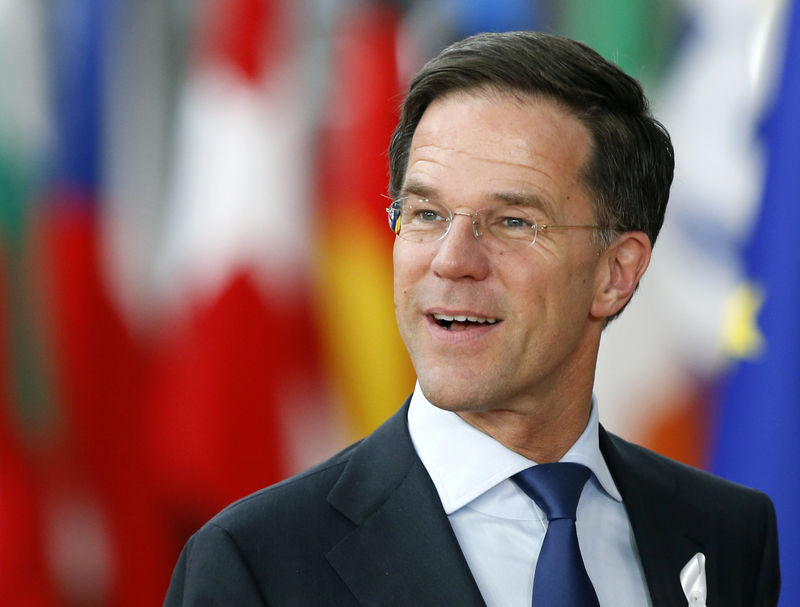Who is Kevin Hassett? Wolfe looks at the Trump ally tipped to become Fed Chair.
By Bart H. Meijer
AMSTERDAM (Reuters) - Dutch Prime Minister Mark Rutte will push ahead with plans to scrap the country's dividend tax, he said on Friday, warning that failure to do so could prompt Unilever (AS:UNc) (L:ULVR) and Shell (AS:RDSa) to move their headquarters elsewhere.
Rutte has come under enormous pressure to keep the 15 percent withholding tax. Opponents argue that scrapping it amounts to a 2 billion euro tax break for foreign investors, mainly designed to please Shell and Unilever.
A recent poll showed that only 11 percent of voters support plans to axe the tax.
"We stand to lose some of the biggest European companies if we do not proceed with this plan," Rutte said in a heated parliamentary debate on the matter. "That is an unacceptable risk."
The prime minister also repeated his core arguments that getting rid of the tax will make the Netherlands a more attractive place to do business, attract foreign investment and create jobs.
"One of the largest companies in the Netherlands will decide, at the end of October, to move its headquarters here," he said, referring to Unilever.
Shareholders of both the British and Dutch arms of Unilever will vote in October whether to approve the plan to create a single headquarters in Rotterdam.
"Another very large company is already here, but is faced with the question whether to remain or even strengthen its position in the Netherlands," Rutte said, referring to oil major Shell, which is headquartered in The Hague.
"They have told us this tax is a major factor in their decisions. You could still opt to hold on to the tax, but there's a large risk that these companies would then decide to leave."
Shell, which uses a dual share structure to exempt British shareholders from Dutch tax, has lobbied against the levy for years. Unilever has been less vocal, but CEO Paul Polman came out in support of Rutte last month, saying scrapping the tax would be good for the Dutch economy.
Several prominent British investors have been critical of Unilever's plan to base its headquarters in the Netherlands, with some citing the increasing uncertainty over the Dutch tax as a new risk.
Rutte's political support appears solid enough for now to see the plan through final approval in December. His coalition holds a one-vote majority in both parliament and the senate.
